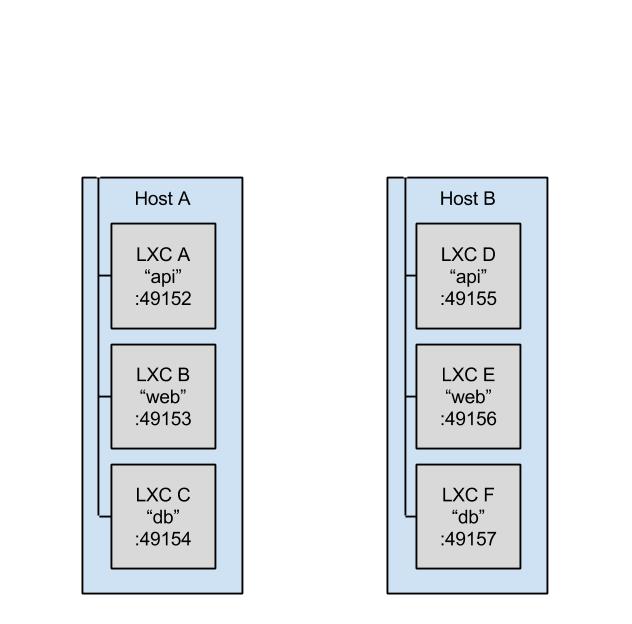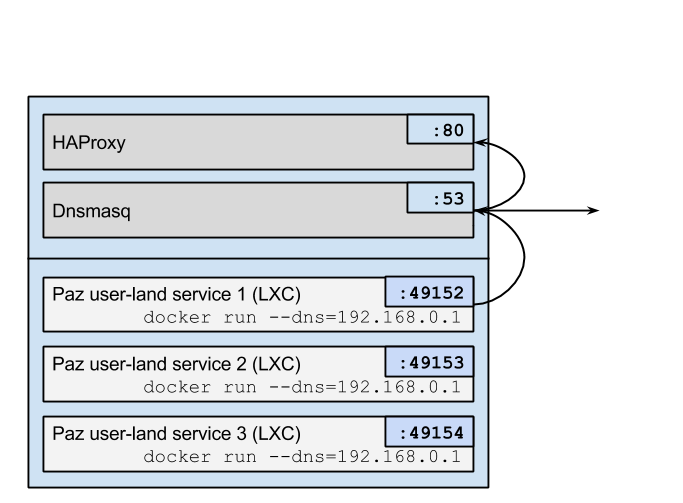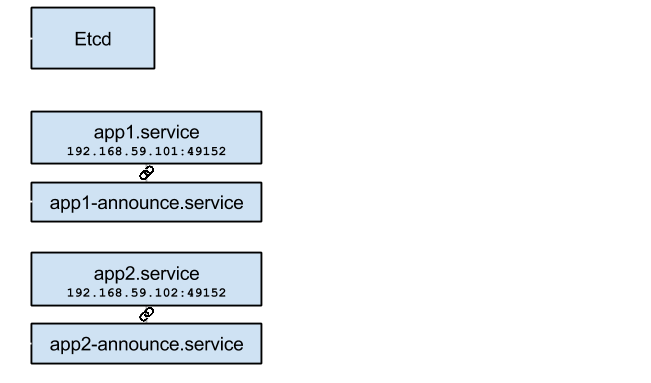Building a Docker PaaS
A Docker networking case study

@lukeb0nd

http://yld.io
ContainerCamp 2015
San Francisco

@lukeb0nd

http://yld.io
ContainerCamp San Francisco 2015
In the next 25 mins...
-
Problems in building a Docker PaaS
-
Deep dive into service discovery, using Paz as a reference point
-
Along the way discuss the Docker ecosystem, and Docker networking in particular

@lukeb0nd

http://yld.io
ContainerCamp San Francisco 2015
Who am I?
- I'm a server developer at YLD.io
- Software engineering consultency
- We do mostly Node.js and Docker
- Built a Docker PaaS called "Paz"

@lukeb0nd

luke@yld.io
What's in a Docker PaaS?
Some problems that may need solving in a Docker PaaS:
-
Workflow
-
Scheduling
-
Service Discovery
-
Routing
-
-
DNS
-
Zero-downtime deployments
ContainerCamp San Francisco 2015

@lukeb0nd

luke@yld.io
What is Service Discovery?
Service A needs to speak to service B.
- How does service A know how to address service B?
- How are requests from service A routed to service B?
Best explained with an example...
ContainerCamp San Francisco 2015

@lukeb0nd

http://yld.io
ContainerCamp San Francisco 2015
Service Discovery

Requirements:
- "web" containers need to talk to "api" containers
- "api" containers need to talk to "db" containers
- Each service takes URL of other service as envvars
- We can't assume service is on the same host
- Ports are random
- Multiple instances of each service type

@lukeb0nd

http://yld.io
ContainerCamp San Francisco 2015
Service Discovery

Sounds like a job for DNS, right?
Traditional* DNS has a few limitations:
- Containers don't have a unique IP
- ∴ SRV records needed
- TTL issues
- Internally we could get around this
- But not externally

@lukeb0nd

http://yld.io
ContainerCamp San Francisco 2015
Service Discovery

IMHO two options:
- A non-traditional DNS solution (e.g. WeaveDNS) with round-robining
- A load-balancing dynamic proxy
The latter is what Paz does, but I'll talk about both.

@lukeb0nd

http://yld.io
ContainerCamp San Francisco 2015

Service Discovery - WeaveDNS
- Weave is a SDN
- Each container gets its own IP address
- So DNS is usable again without SRV records
- WeaveDNS is DNS for addresses on a Weave network
- You can register multiple IPs against a name

@lukeb0nd

http://yld.io
ContainerCamp San Francisco 2015
Service Discovery - Dynamic Proxy

Logical View
- This is the "ambassador pattern"
- Part proxy, part dynamic load-balancer
- You could apply this logical model to various protocols
- e.g. HTTP requests proxied by host header

@lukeb0nd

http://yld.io
ContainerCamp San Francisco 2015
Service Discovery - Dynamic Proxy

- All containers' DNS point to Dnsmasq on same host
- All *.mydomain forwarded to HAProxy
- All else to the Internet

@lukeb0nd

http://yld.io
ContainerCamp San Francisco 2015
Service Discovery - Dynamic Proxy

- All running on CoreOS, using Fleet and hence systemd
- "Sidekick" announce units using systemd BindsTo directive
- Writes IP:port for service (from docker inspect) to Etcd
- Writes with TTL, sleeps, loop
- Will stop when service stops

@lukeb0nd

http://yld.io
ContainerCamp San Francisco 2015
Service Discovery - Dynamic Proxy
frontend http-in
bind *:80
acl subdom_myservice hdr(host) -i myservice.paz hdr(host) -i myservice.mydomain.com
use_backend backend-myservice if subdom_myservice
acl subdom_paz-web hdr(host) -i paz-web.paz hdr(host) -i paz-web.mydomain.com
use_backend backend-paz-web if subdom_paz-web
backend backend-myservice
balance roundrobin
server myservice-v1-1 10.131.238.241:49177
server myservice-v1-2 10.131.238.242:49165
backend backend-paz-web
server paz-web 10.131.238.233:49164HAProxy config example excerpt:
This gets written by Confd.
Confd watches Etcd directories and renders values against a template into the HAProxy config file.

@lukeb0nd

luke@yld.io
Docker Multi-host Networking
- Docker has been criticised for multi-host networking being hard in Docker
- IMHO this is unfair
- This is what happens when you make things easier
- Also criticised for providing their own solution
- ie. Docker Swarm
- Also unfair
ContainerCamp San Francisco 2015

@lukeb0nd

luke@yld.io
Difficult Doesn't Mean Bad
- Multi-host LXC networking is complex
- That's not Docker's fault
- Docker (pre-Swarm/Compose) is a low-level building block for a platform
- My issues with Docker lie elsewhere...
ContainerCamp San Francisco 2015

@lukeb0nd

luke@yld.io
The Docker Daemon
- A PaaS can't start/stop Docker containers
- It asks the Docker daemon to do so
- My issue with Docker is the lack of process control and composability
- The daemon/platform is in control not me or a platform I build
- I love Docker but this is something about appc (rkt) that I prefer
ContainerCamp San Francisco 2015

@lukeb0nd

luke@yld.io
Summary
- A PaaS designed for 12-factor apps needs to deal with some complex realities
- A good Docker PaaS should be fully dynamic
- Service Discovery IMHO needs to be either WeaveDNS or a dynamically-configured load-balancing proxy
- Docker networking can be difficult
- Docker networking is not a problem
- Docker is awesome & production-ready
ContainerCamp San Francisco 2015
container-camp-2015
By Luke Bond
container-camp-2015
- 2,499



